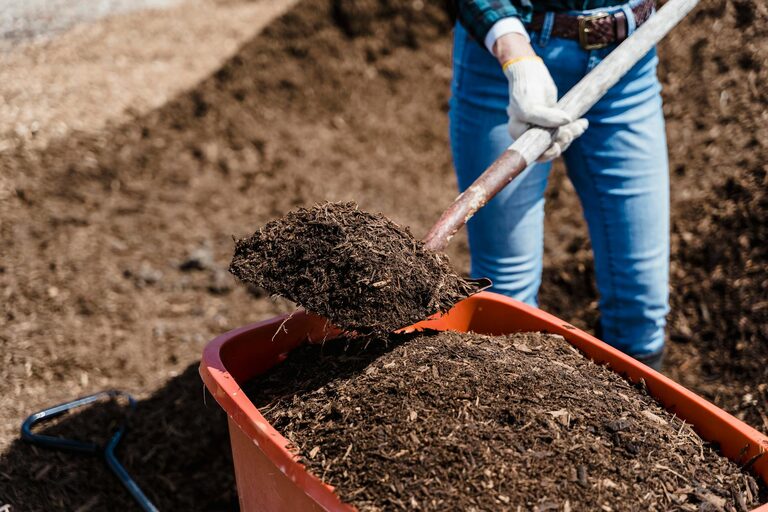Beginner Tips for Composting at Home: Easy Steps to Get Started

Composting is a natural process that turns kitchen scraps and yard waste into nutrient-rich soil amendment. It’s an excellent way to reduce household waste and improve your garden’s health. If you’re new to composting, it might seem a bit overwhelming at first. But with some basic guidance, you can start your own compost at home with ease. This guide will walk you through beginner tips to help you create a thriving compost pile or bin.
What is Composting?
Composting is the decomposition of organic materials like food scraps, leaves, and grass clippings. Microorganisms break these down into humus — a dark, crumbly material full of nutrients necessary for plants. Using compost in your garden helps retain moisture, improves soil structure, and reduces the need for chemical fertilizers.
Benefits of Composting at Home
– Reduces landfill waste: Food scraps and yard waste make up a large portion of trash. Composting diverts this from landfills.
– Improves soil quality: Compost adds organic matter and improves soil fertility and texture.
– Saves money: Reduces the need to buy fertilizers and soil conditioners.
– Supports plant growth: Compost provides essential nutrients in a natural way.
Getting Started: Choosing a Composting Method
There are several ways to compost at home. Choose the method that fits your space and lifestyle.
1. Compost Bin
– Ideal for small yards or patios.
– Can be purchased or DIY using materials like wood pallets or plastic bins.
– Keeps compost contained and reduces pests.
2. Compost Pile
– Suitable for larger outdoor spaces.
– Less restricted but requires a defined area.
– Needs regular turning to aerate.
3. Worm Composting (Vermicomposting)
– Perfect for indoor or small spaces.
– Uses worms to break down food scraps quickly.
– Produces nutrient-dense worm castings.
What to Compost: Materials That Work Best
Successful composting depends on the right balance of materials. These fall into two categories: “greens” and “browns.”
Greens (Nitrogen-rich)
– Vegetable and fruit scraps
– Coffee grounds and tea bags
– Fresh grass clippings
– Plant trimmings
– Eggshells (crushed)
Browns (Carbon-rich)
– Dry leaves
– Straw or hay
– Shredded newspaper or cardboard
– Wood chips or sawdust
– Paper towels and napkins (unbleached)
Items to Avoid
– Meat, dairy, and oily foods (attract pests)
– Diseased plants or weeds with seeds
– Pet waste
– Glossy or colored paper
Tips for Effective Composting
1. Maintain the Right Balance
Mix greens and browns in roughly equal amounts to keep compost healthy and odor-free. Too many greens can cause a smell; too many browns may slow decomposition.
2. Chop or Shred Materials
Smaller pieces decompose faster because they have a larger surface area for microorganisms to work on.
3. Keep It Moist
Compost should be as damp as a wrung-out sponge. Water dry materials occasionally, especially in hot weather.
4. Turn the Pile Regularly
Aerate your compost by turning it every 1-2 weeks to help speed up decomposition and prevent odor.
5. Monitor Temperature
Active compost heats up during decomposition. A warm pile (between 130°F and 160°F) means microbes are working efficiently. Use a compost thermometer if you want to track this.
6. Be Patient
Depending on conditions, compost can take anywhere from a few weeks to several months to mature. Finished compost will be dark, crumbly, and smell earthy.
Troubleshooting Common Compost Problems
– Bad odors: Usually caused by too many greens or lack of air circulation. Add browns and turn the pile.
– Compost not heating up: May need more greens, moisture, or turning.
– Pests: Avoid meat and dairy; use closed bins if necessary.
– Slow decomposition: Chop materials finer and maintain moisture.
How to Use Your Finished Compost
– Mix into garden beds to improve soil.
– Use as mulch around plants to retain moisture.
– Add to potting mixes for container gardens.
– Create homemade potting soil by combining compost, sand, and garden soil.
Final Thoughts
Starting composting at home is easier than many think. By following these beginner tips, you’ll not only reduce waste but create a valuable resource for your garden. Remember, every small step helps the environment and nurtures a more sustainable lifestyle.
Ready to give it a try? Gather your materials, pick a method, and start composting today!
—
Happy composting, and enjoy the benefits of greener gardening!
